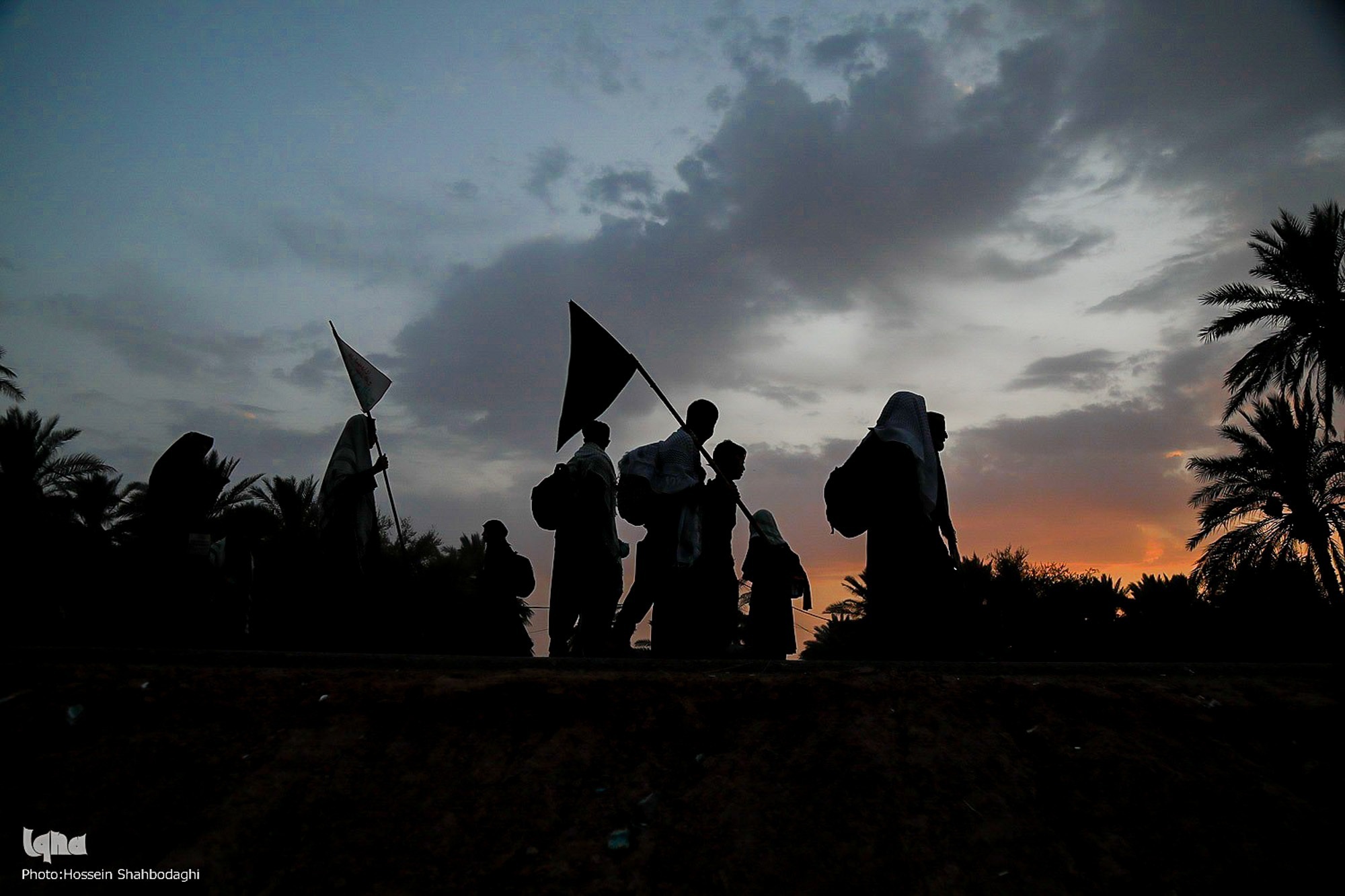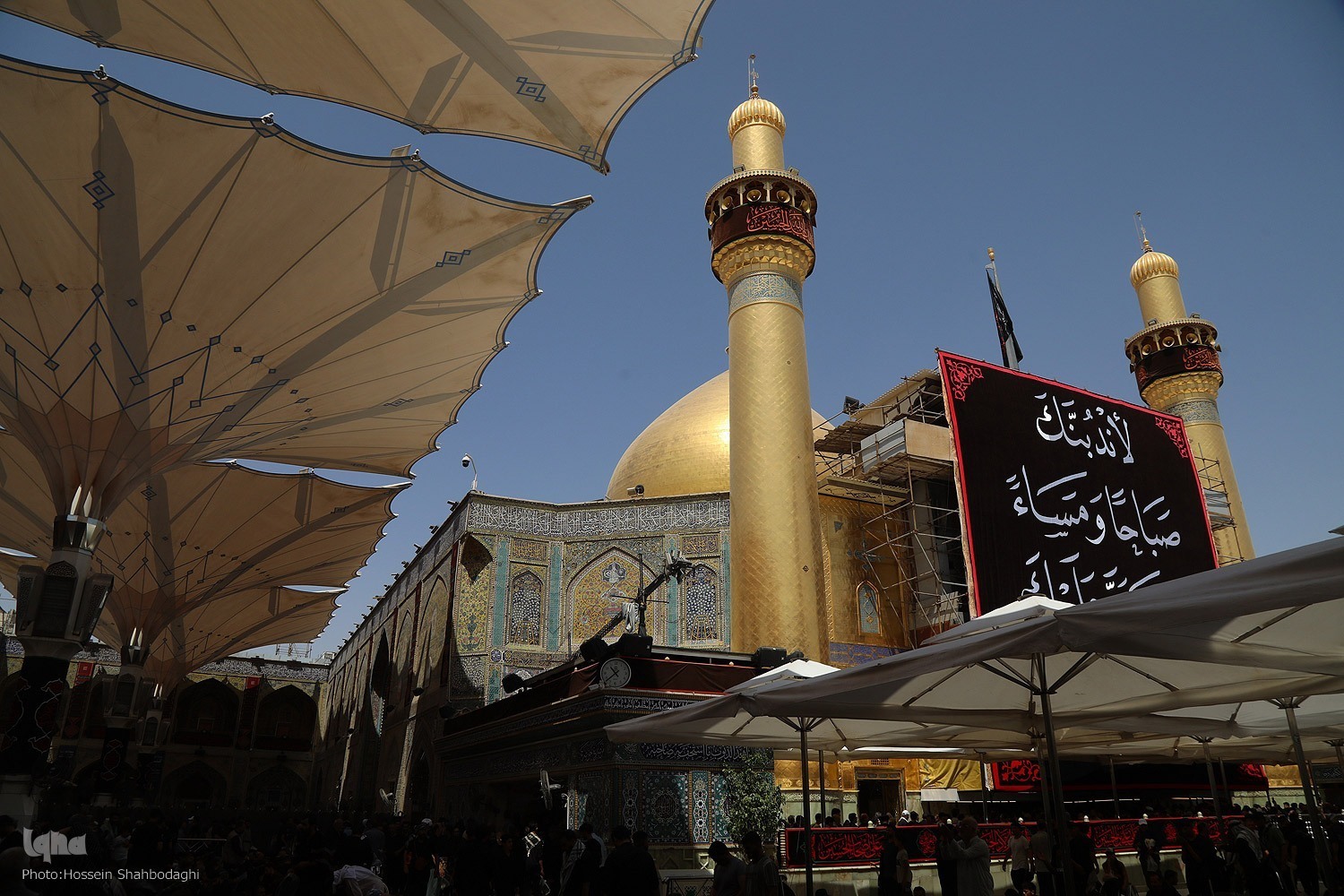Tears and Smiles on the Road to Karbala: Stories from the Arbaeen Pilgrimage

The Arbaeen pilgrimage is not measured in kilometers, but in the heartbeat of longing hearts. It is a river of devotion flowing from every corner of the world toward the shrine of Imam Hussein (AS). Here, the sky seems to bend lower, as if to walk alongside pilgrims who whisper his name with both tears and laughter.
Every step tells a tale. A mother clasps her young child’s hand, planting the seeds of love in tiny footsteps. A young man, his shoes worn and feet blistered, walks with a sparkle in his eyes—trading all fatigue for a single greeting at the shrine. An older man, placing his hand on his chest every few meters, greets as though he’s been in his beloved’s presence all along.
Watch:
Along the road, mokebs—temporary roadside tents—stand like open arms, offering warm bread, sweet tea, cold water, or even just a smile. Iraqi men and women, their hands rough from work yet their eyes brimming with joy, serve the pilgrims not out of obligation, but pure love.
The air here is filled with both the heaviness of separation and the sweetness of reunion.
Each pilgrim carries a secret, a prayer, a vow—restless until it finds peace in Karbala. It is as if earth and sky meet at one point, where all borders fade, leaving only one name: Hussein.

The Father’s House
It is said that a daughter will give her life to not let a thorn touch her father’s foot. Wherever you go, there’s no comfort like a father’s home. In Najaf, they call the shrine of Imam Ali (AS) the house of all daughters.
One young woman, a first-time pilgrim, admits she was never particularly religious. In past years, Muharram meant only joining her family’s gatherings. But now she stands in the line to greet her first Imam, feeling oddly empty.
“I don’t feel sorrow. My heart’s not pounding. Maybe something is wrong with me,” she confesses. She doesn’t know that this is the grace of Imam Ali (AS)—never letting his daughters feel the loneliness of exile in his land.
When she reaches the shrine, her words vanish.
The same girl who moments ago spoke of not feeling anything now finds tears streaming down her face. She leans against the shrine, as though something deep within her has shifted—something beyond words.
Watch:
In that moment, she seeks neither signs nor explanations. She simply knows she has arrived—into the embrace of a father who knows no borders and no distance. This is Najaf, and this shrine is the father’s home.
A Prayer That Was Heard
Every pilgrim comes with a story. Some arrive with hearts full of words, others with eyes dry of tears, but most carry a request. Najaf is more than a holy site; it’s a place for untying the knots of life’s troubles.
Fatemeh is among those who stand quietly by the shrine. Young, calm, wearing a black headscarf, her eyes fight to hide their tears. She tells me she prayed for three years to come here—so that her voice might be heard.
“Maybe my problem doesn’t seem big to others,” she says softly, “but for me, it was heavy. I made a decision no one took seriously. I just came to tell Imam Ali I can’t carry this grief alone anymore.”
She says she has never felt as seen as she did at that moment, right there by the shrine. The knot may still be tied, but she is certain now that somewhere, someone has taken her hand.
About Arbaeen
Arbaeen marks the 40th day after Ashura, the martyrdom of Imam Hussein (AS) in Karbala in 680 AD. It is one of the world’s largest peaceful gatherings, drawing millions of pilgrims—Muslim and non-Muslim alike—from around the globe.
Many walk the 80 kilometers from Najaf to Karbala, a journey of about three days, in remembrance of Hussein’s stand for justice and dignity. Hospitality along the way is legendary, with locals opening their homes, hearts, and hands to serve travelers, embodying the very spirit of the Imam they honor.
Reporting by Fateme Borzuei
4298766



